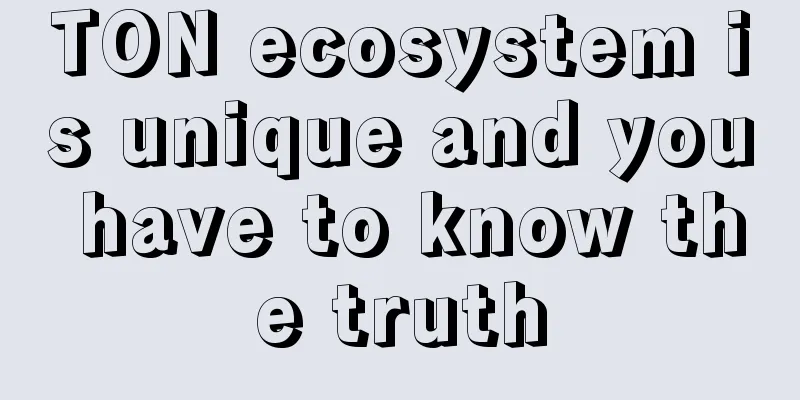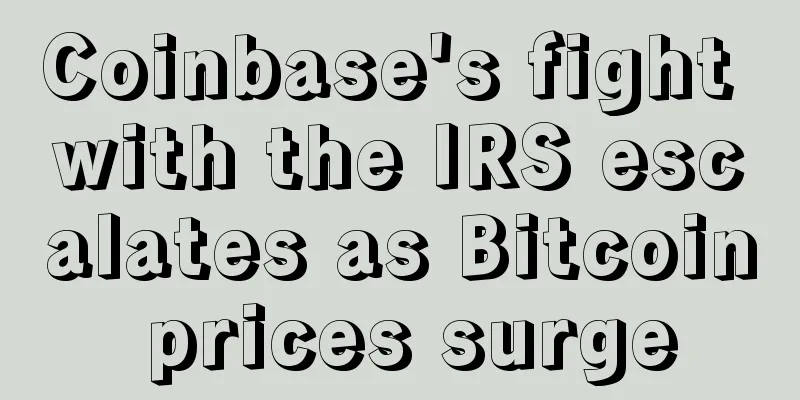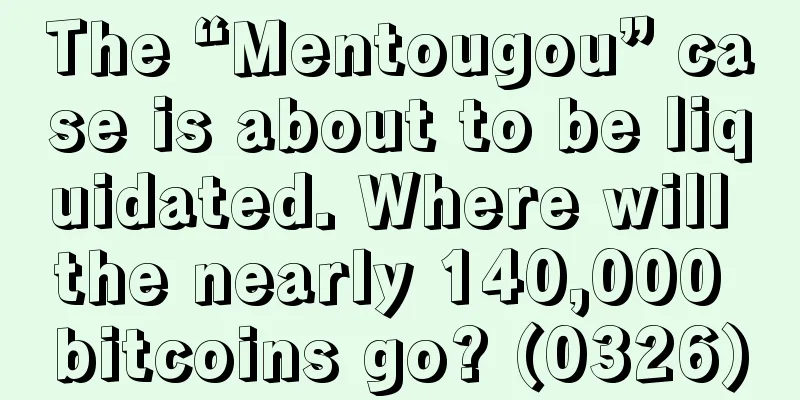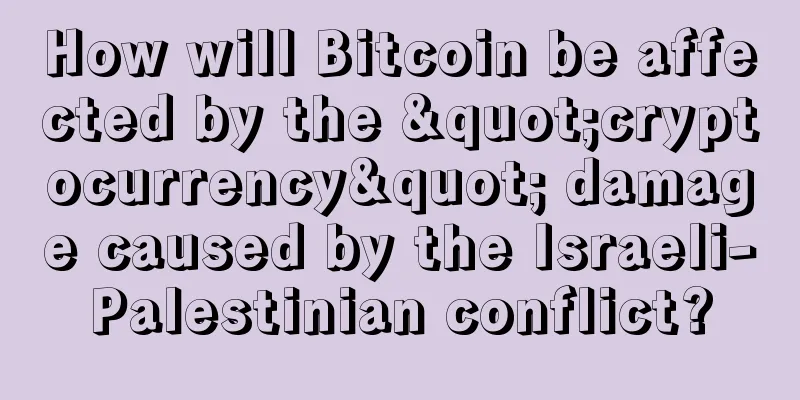What are the chances of the Solana ETF passing? What impact will it have?
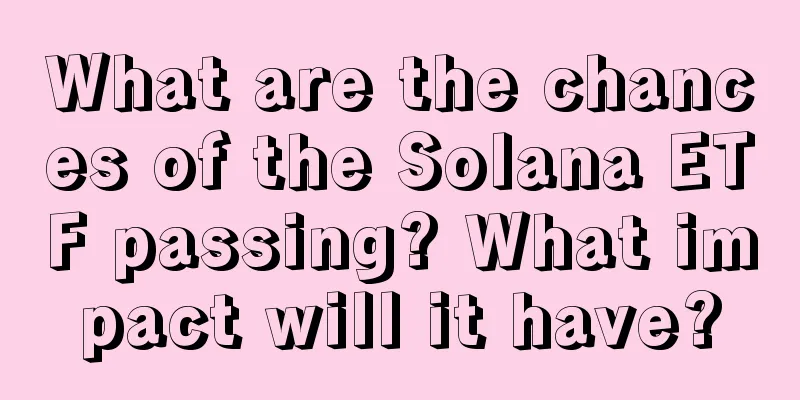
|
The announcement by VanEck and 21Shares that they are applying to list a Solana ETF has caused a strong reaction in the crypto community, and Solana's price has soared as a result. The proposal is significant because it could bring more institutional investment and mainstream recognition to Solana, a blockchain known for its high transaction speeds and low costs. The approval of an ETF would make Solana more accessible to traditional investors, potentially increasing demand and liquidity. However, even if the ETF is not approved, the proposal itself highlights the growing interest in expanding crypto investment options beyond Bitcoin and Ethereum, indicating a growing acceptance of various digital assets. Will a Solana ETF be approved?The recent proposal for a Solana ETF has been widely discussed in the crypto community. The proposal aims to launch a spot ETF that tracks the performance of Solana (SOL), a blockchain known for its high transaction speeds and low costs. The move is seen as a noteworthy one that could bring more institutional attention and investment to Solana. Immediately after the announcement, Solana's price surged, reflecting the market's optimism. However, despite the excitement, the likelihood of the ETF being approved by the U.S. Securities and Exchange Commission (SEC) remains low, especially given the current regulatory environment. The potential benefits of a Solana ETF are enormous. First, it would provide a more accessible investment vehicle for those who want exposure to Solana without having to directly purchase and manage the cryptocurrency. This could lead to increased demand and liquidity for Solana. Additionally, the launch of a Solana ETF could confirm Solana’s status as a major blockchain alongside Bitcoin and Ethereum, potentially driving further adoption and growth of its ecosystem. It would also signal the growing acceptance of various crypto assets in mainstream financial markets. On the downside, the approval of the Solana ETF faces several hurdles. The SEC has historically been cautious about approving cryptocurrency-based ETFs, primarily due to concerns about market manipulation and the lack of a regulated futures market for Solana. Unlike Bitcoin and Ethereum, which had futures products before considering their respective ETFs, Solana currently lacks this infrastructure, making its ETF proposal more challenging. Additionally, Solana’s past network outages may raise more concerns about its reliability and stability, which could affect the SEC’s decision. The overall reaction to the Solana ETF proposal highlights the mixed emotions within the crypto industry. While some see this as positive news that could pave the way for more crypto ETFs, others remain skeptical about the proposal being approved in the current regulatory environment. If approved, the ETF could set a precedent and spark a wave of similar products for other cryptocurrencies. However, this is contingent on significant regulatory shifts, which could be impacted by political changes in the year ahead. As a result, the crypto community remains cautiously optimistic, recognizing the opportunities and challenges ahead. Despite recent approvals for Bitcoin and Ethereum ETFs, Solana ETF remains uncertainDespite the recent approval of Bitcoin and Ethereum ETFs, the regulatory environment for cryptocurrencies in the United States remains fragmented and uncertain. Different regulatory agencies, such as the Securities and Exchange Commission (SEC) and the Commodity Futures Trading Commission (CFTC), continue to argue over jurisdiction and the proper classification of crypto assets. The SEC has been particularly aggressive in its stance, often labeling various tokens as securities, while the CFTC has pushed for a broader definition that would consider some cryptocurrencies commodities. This ongoing conflict has created a murky regulatory environment that makes it difficult for stakeholders to understand the rules and for projects to ensure compliance. This has led many crypto projects to seek more favorable jurisdictions where it is easier to navigate the regulatory environment, sparking discussions about regulation and becoming a hot topic in the current U.S. political discourse. A key point of contention is whether certain assets are considered securities under U.S. law. The SEC’s approach generally hinges on the Howey test, which determines whether an asset qualifies as an investment contract. However, this test has been inconsistently applied to digital assets, leaving a gray area that exacerbates uncertainty. This ambiguity extends to the concept of “sufficient decentralization,” a term used by regulators to exempt certain assets from securities laws. The standards for what constitutes sufficient decentralization are vague and unevenly applied, leading to confusion among market participants and hindering the development of a coherent regulatory framework. Ambiguities in regulatory definitions and enforcement have a significant impact on the approval of the Solana ETF. Given Solana’s innovativeness and complexity, including its high transaction speed and decentralized ecosystem, it is unclear how regulators will classify the asset. The SEC’s cautious and sometimes arbitrary application of securities laws to different cryptocurrencies adds another layer of unpredictability. If Solana is deemed insufficiently decentralized, or if it falls under the SEC’s broad definition of a security, the chances of an ETF being approved will be greatly reduced. This regulatory ambiguity could deter institutional investors and create barriers to broader market adoption. Investors need clear, predictable regulations to make informed decisions and mitigate risk. Ongoing jurisdictional disputes and a lack of clear guidelines on what constitutes a security or sufficiently decentralized asset undermine confidence in the regulatory process. Until these issues are resolved, approval of the Solana ETF and similar crypto-focused financial products remains uncertain, which could stifle innovation and slow the integration of digital assets into mainstream financial markets. What impact would it have if the Solana ETF was approved?If the Solana ETF is approved, it could have significant and multifaceted implications for the cryptocurrency market and the broader financial landscape. First, it could drive increased institutional interest and investment in Solana. ETFs are popular investment vehicles among institutional investors because of their regulatory oversight, ease of trading, and ability to fit into existing investment strategies. An approved Solana ETF would provide institutional investors with a direct way to gain exposure to Solana without having to directly manage the underlying assets. The influx of institutional capital could increase market stability and liquidity, which could drive up the price of SOL as demand increases. Second, an approved Solana ETF could increase the Solana blockchain’s credibility and legitimacy within the broader traditional financial community. Just as the approval of Bitcoin and Ethereum ETFs helped solidify their status as mainstream financial assets, a Solana ETF would signal approval and recognition from regulators. This could encourage more conservative investors who have been reluctant to invest in cryptocurrencies due to regulatory uncertainty to consider adding Solana to their portfolios. It could also incentivize other blockchain projects to pursue similar regulatory paths, fostering greater innovation and adoption across the industry. The impact on the broader cryptocurrency market could also be far-reaching. The approval of the Solana ETF could set a precedent for the approval of ETFs based on cryptocurrencies other than Bitcoin and Ethereum. This could lead to a surge in cryptocurrency-based ETFs, providing investors with a wider range of options and further integrating cryptocurrencies into the traditional financial system. In addition, as projects strive to meet the higher standards expected by institutional investors, increased competition between different blockchain platforms could spur technological advancements and improvements in scalability, security, and user experience. However, approval of the Solana ETF is not without potential negative consequences. Regulatory scrutiny could intensify, potentially leading to stricter oversight and compliance requirements that could stifle innovation. Increased regulation could mean the end of the explosive growth of the highly volatile Solana Memecoin, and requirements such as providing more oversight or implementing AML/KYC in Solana DeFi products could emerge. The focus on regulatory approval could distract from the core ethos of decentralization and community-driven development that the cryptocurrency ecosystem relies on. As the industry continues to evolve, balancing the benefits of mainstream adoption with the need to uphold the fundamental principles of blockchain technology will be critical. |
<<: Bull Markets Past and Present
>>: Cryptocurrency Rankings for 2024 (F to S)
Recommend
These three places have very good luck
The position and shape of a mole can reflect the ...
Asian market continued to rise but did not break out of the range
Bitcoin prices continued to rise in the Asian ses...
A face destined for health and longevity
A face destined for health and longevity 1. Eyebr...
Large gap between teeth
In daily life, we often see some people with larg...
Types of fingerprints and their meanings
Fingerprints can be roughly divided into four cat...
22 halving coins set off a 2020 boom: Fierce small mining coins will take you to heaven and hell
How powerful is the halving trend? Let’s first ta...
Is Taiyin in the House of Wealth a good influence? How is your fortune?
The houses have their own interpretations and inf...
A man with an upturned nose. How does a woman with an upturned nose look like?
1. Men with big nostrils Generally speaking, if a...
If a woman has moles on these 10 parts of her body, she will either be rich or noble (Part 2)
1. Moles on the chest In physiognomy, if a woman ...
What does it mean when a man has a mole on his left and right shoulders? What does it mean when a woman has a mole on her left and right shoulders?
What does it mean if a man has moles on his shoul...
A face that can help you
A face that can help you More friends mean more p...
What kind of face does a man have?
Whether a man is unfaithful can be seen from his ...
Is it true that a woman's nose represents her luck in marriage?
The nose has always been one of the most importan...
How to tell the time of marriage from face reading
When the wedding date is, how early or late the m...
What kind of face will make men more and more prosperous after marriage?
1. Beautiful features and spirit The eyes and eye...
